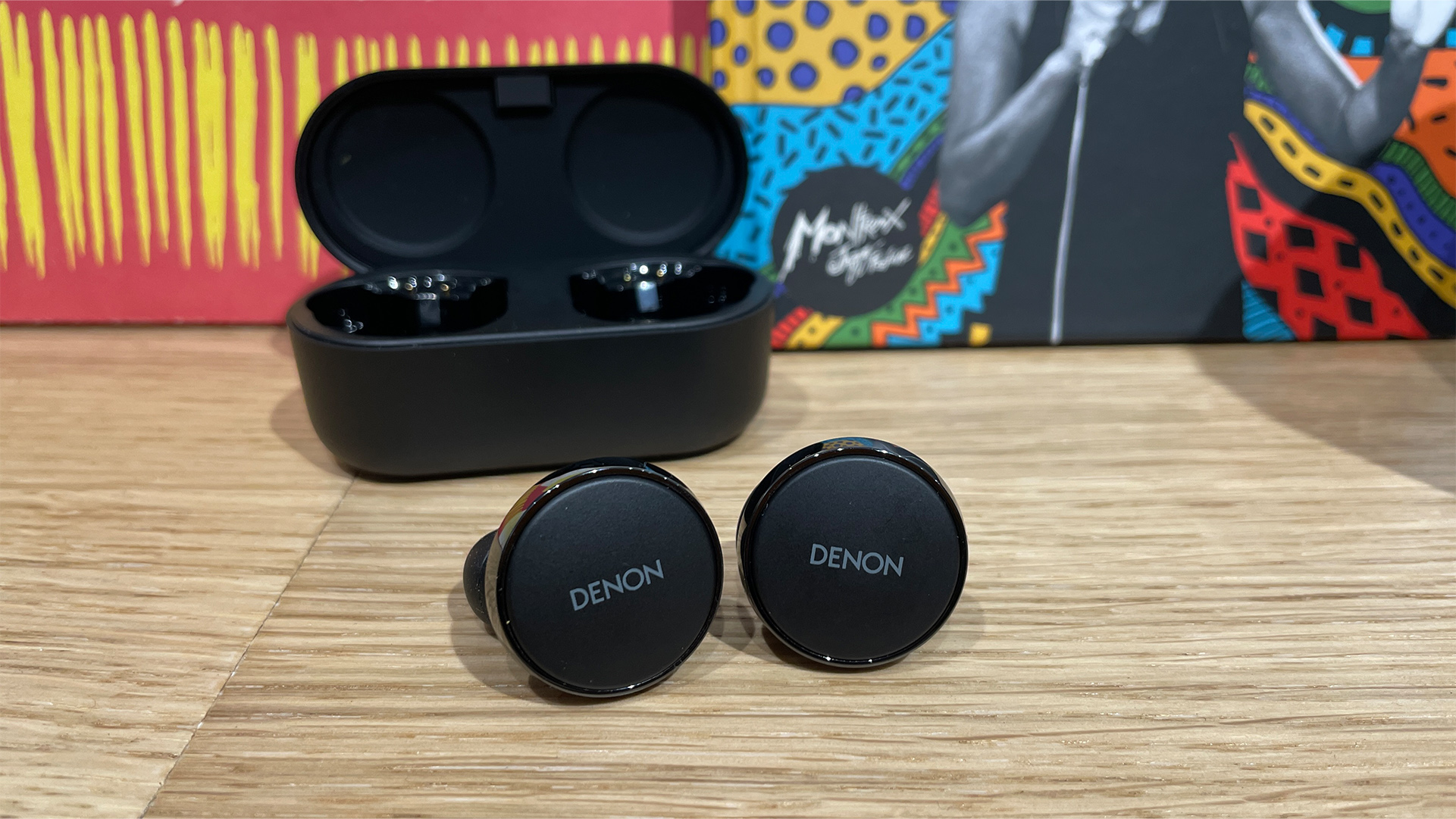
Denon may have a rich history of hi-fi behind its name, but that doesn’t guarantee success in the wireless earbuds game today, at a time when it’s tough to differentiate between the troves of wireless earbuds you can buy.
What Denon can do in order to stand out is offer a personalised listening profile “that is perfectly tuned to you” – now that’s quite appealing, isn’t it? The Denon PerL Pro wireless earbuds cost a pretty penny but this key feature could be just the thing to draw listeners away from the usual contenders to something a little different, one that’s – potentially – a lot more tailored to how you listen.
Price
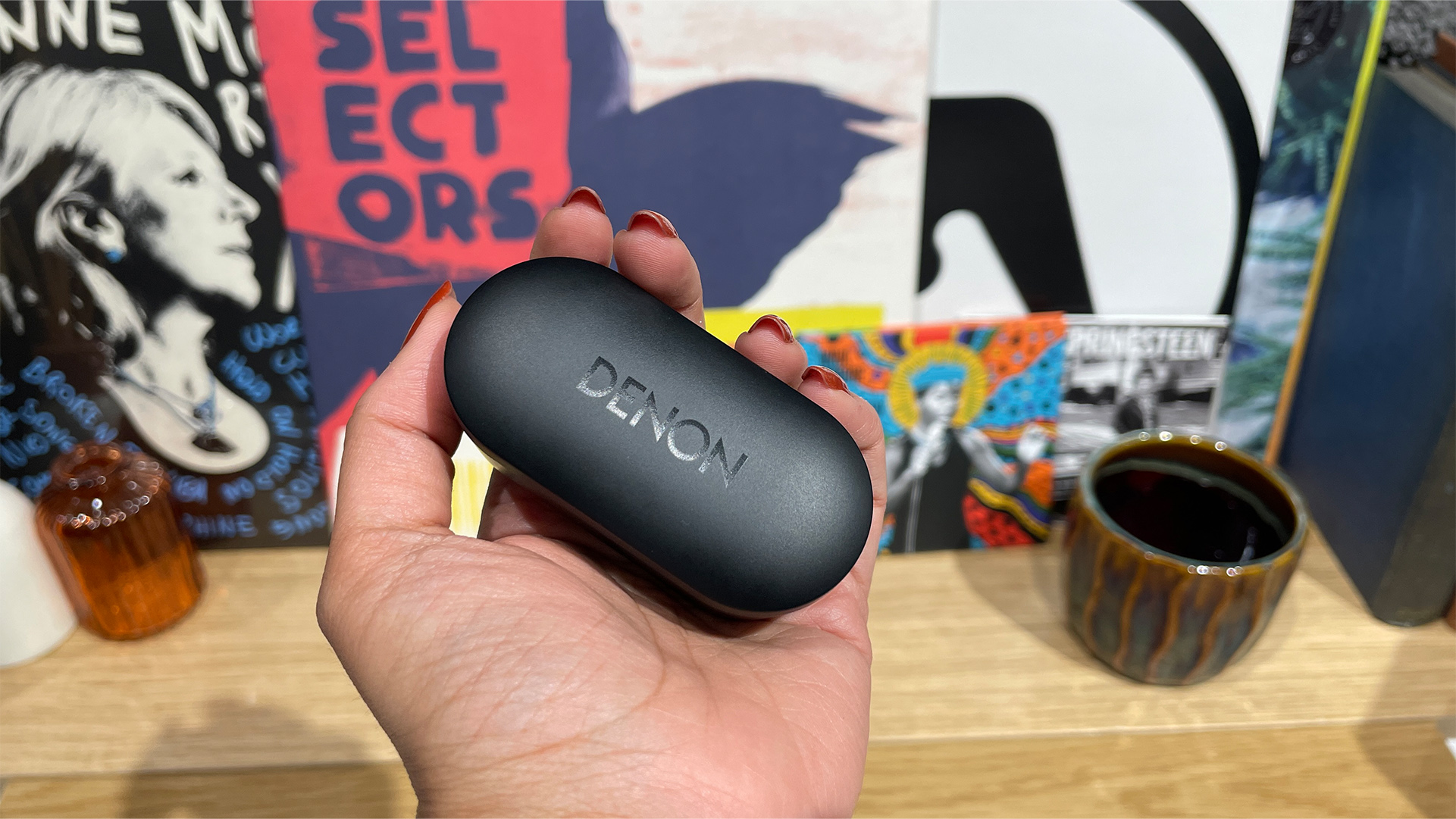
You pay a premium for that personalised hearing technology. The Denon PerL Pro are positioned at the pricey end of the wireless earbuds market and are yours for £299 / $349 / AU$549. Other flagship earbuds hover around this price range, such as the five-star Bose QuietComfort Ultra Earbuds (£300 / $299 / AU$450) and the Award-winning Sony WF-1000XM5, which, at £259 / $299 / AU$419, undercut the Denon by a significant margin of £40 / $50 / AU$130.
If you’re not fussed about spatial audio or the lossless codec support in the PerL Pro, it’s worth noting that there’s a step-down Denon PerL model for £189 that cuts these extra features and trims down the battery life. It still offers that personalised listening profile test, though.
Design & comfort
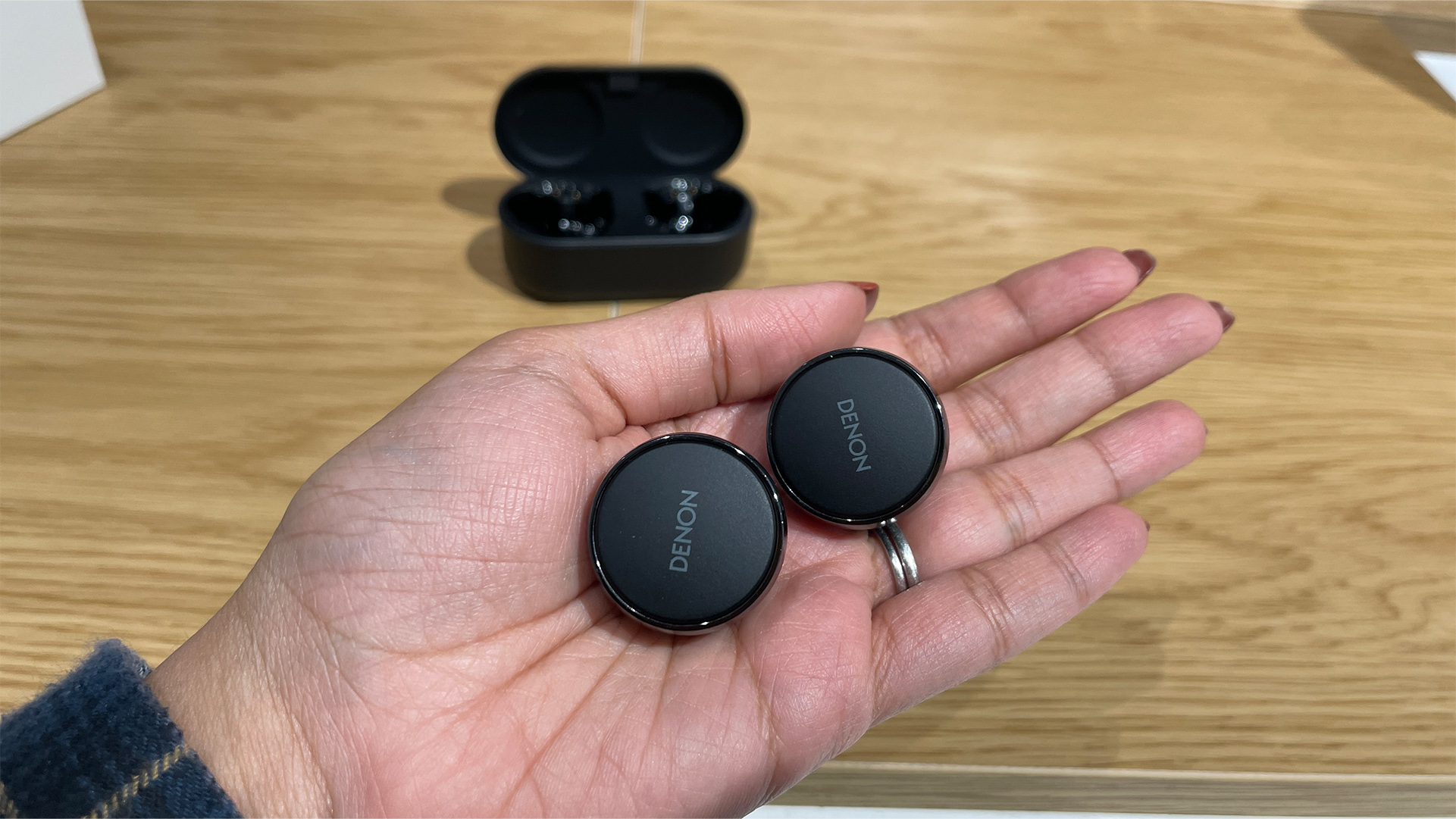
Our first reaction upon seeing the Denon PerL Pro buds is that they’re rather large. A 10mm triple-layer dynamic driver is housed in each earbud, and the fully circular design is considerably heavier compared with most earbuds we’ve tested recently, with each bud weighing 8.6g. In comparison, the Sony XM5 weigh just 5.9g and even the bulky-looking Huawei FreeClip are much lighter at 5.6g each.
The buds come with multiple eartips (four sizes of silicon tips, one pair of foam tips) and two sizes of winged support bands to help you get the best fit. There is an eartip fit test in the accompanying app to ensure you’ve got a good seal, which is well worth employing. During our testing period, members of our review team had varying levels of success. Some found the buds fit securely and stayed put on the first try, while others found the buds popped out after a while and struggled to get a long-lasting fit. We did find that our ears could get rather hot when wearing the PerL Pro for a long time, too; we were very aware of the pressure of the buds in our ears, which isn’t something we experience with rival earbud designs too often.
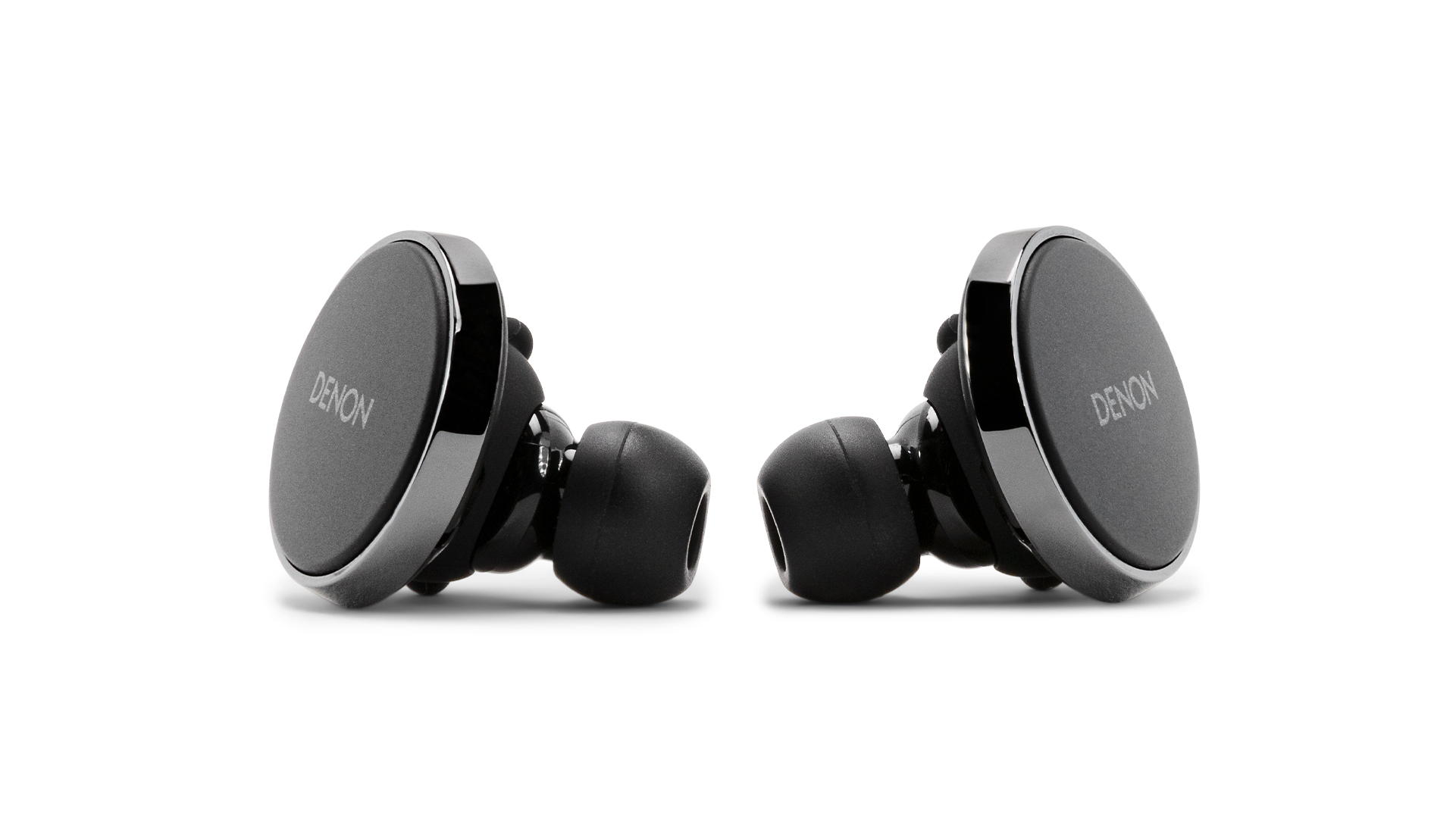
Type True wireless earbuds
Bluetooth 5.3
Codec support AAC, SBC, aptX, aptX Adaptive, aptX Lossless
Active noise-cancelling? Yes
Spatial audio? Yes
Battery life 8 hours (earbuds), total 24 hours (with charging case)
Finishes x1 (black)
Earbuds weight 8.6g
Charging case weight 55.5g
The charging case is also a tad bulky, but the profile is slim enough that you can slip it into bags and pockets. The case isn’t waterproof, but the buds do come with an IPX4 sweat resistance rating.
The PerL Pro buds are well made and look smart with their minimal styling. They’re only available in a black matte finish, but we’re not sure they scream luxury. They don’t quite live up to their premium billing in the flesh, whereas earbuds such as the Bowers & Wilkins Pi7 S2 exude class and luxury befitting their expensive £349 / $399 / AU$700 price tag.
What is clever about the PerL Pro is that the flat surface on both buds doubles up as touch controls and, more importantly, these controls are extensively customisable. We’ve griped about how some headphones (such as the recently-reviewed Philips Fidelio T2) don’t let you customise the controls to a more sensible tapping system, but Denon happily lets you assign functions to each side that can be summoned with Morse Code-level taps to your heart’s content.
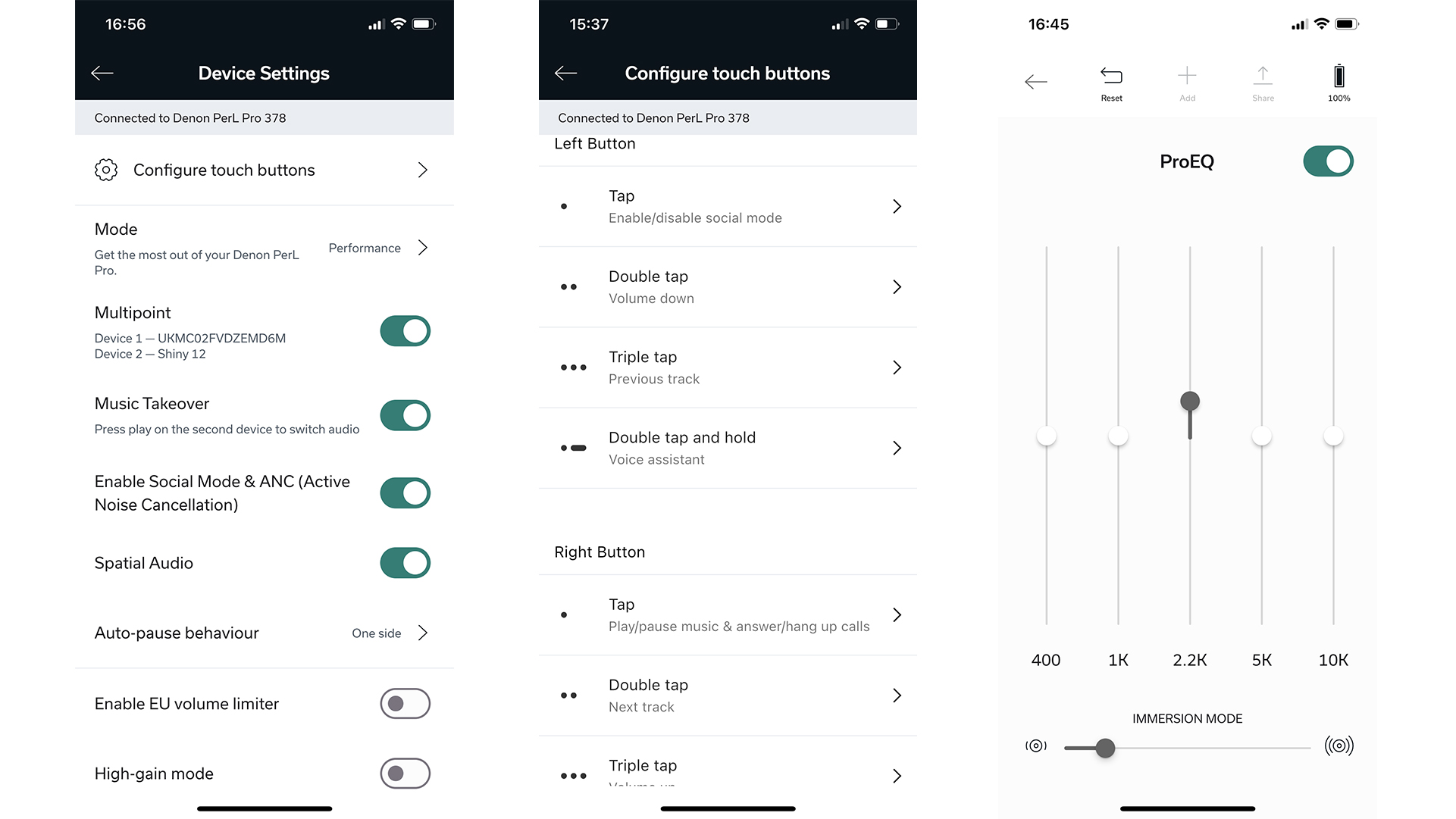
This means you can access all its features – ANC, social mode, answer calls, change volume, play/pause/skip and many more – by various tapping methods. Or you can keep it super simple and just have playback controls as single taps.
We love this level of customisation that lets you configure your earbuds in a way that makes sense to you; we wish more manufacturers would follow this method, rather than prescribing or limiting these crucial control uses.
The controls themselves are responsive and there’s a satisfying feedback tone whenever an action takes place. A female voice also guides you through various settings or changes in the earbuds. We couldn’t find a way to turn this off, but you can turn the voice’s volume down to low in the app so it’s not too intrusive.
ANC & call quality
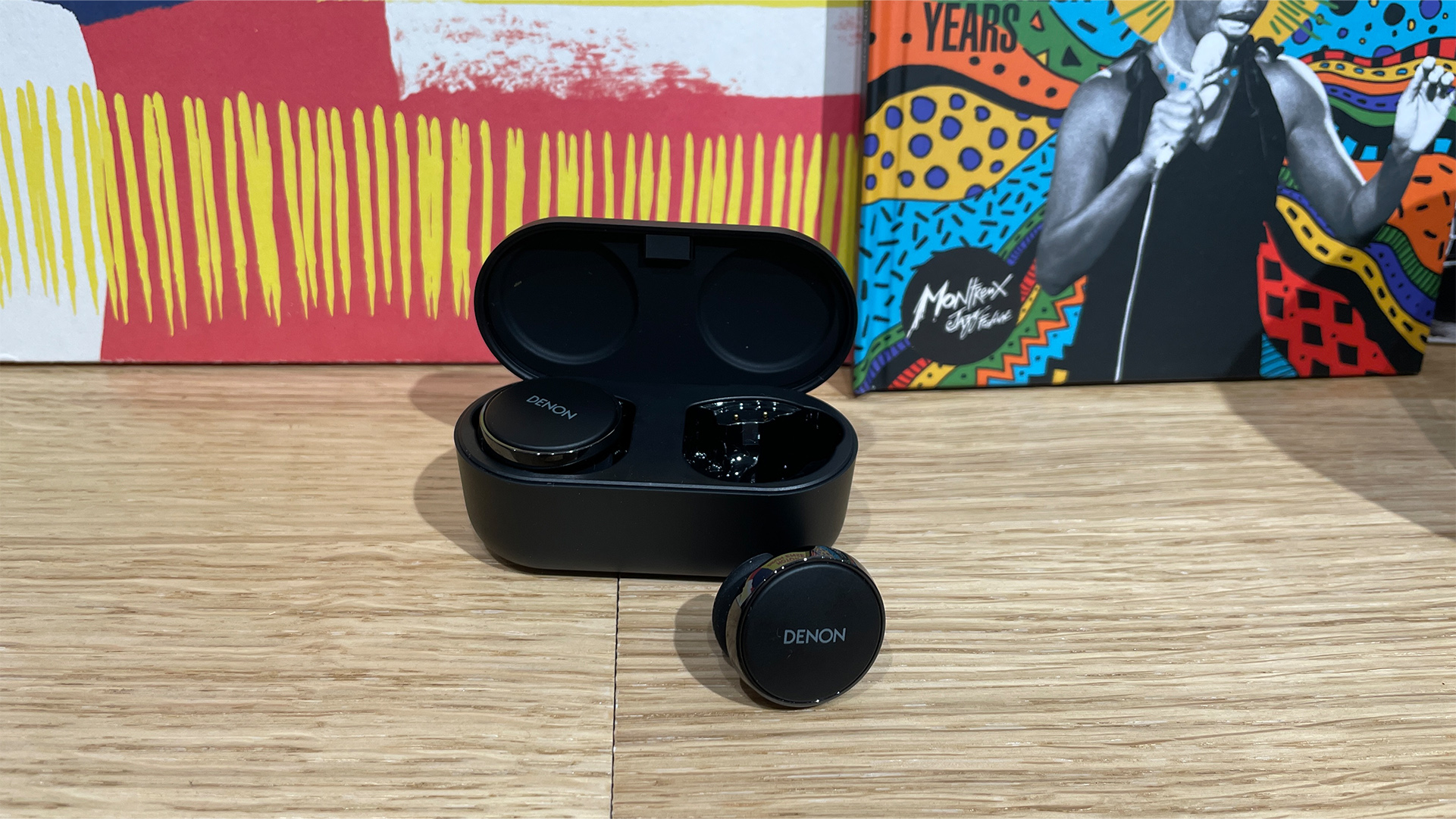
Alongside the ultra-low distortion driver, the buds are packed with eight microphones in total: four mics in each bud along with two bone-conduction mics. These all serve the adaptive active noise-cancelling (ANC) in the Denon earbuds, and aim to deliver clear voice calls in conjunction with Qualcomm aptX Voice technology. During our time with the Denon earbuds, we found our voices sounded clear, solid and detailed over voice and video calls, with no dropout or connection issues at either end.
Denon admits that ANC isn’t the primary focus here – sound is the main focus, which is always nice to hear. And it rings true, with ANC dimming sounds but not fully eliminating the droning, rumbling or sharper tones around you as effectively as the Sony XM5, the Bose QC Ultra Earbuds or even the AirPods Pro 2nd Generation.
Employing the social mode (aka transparency mode) lets the outside world in, and we appreciate how subtle this effect is in the PerL Pro. Some buds can amplify these outside environmental noises and sound overly harsh and artificial when transparency mode is engaged; on the Denon, it’s a far gentler and smoother experience. We also find that music sounds more or less the same when ANC is turned on or off. Turn it off for a smidge more clarity and detail, but when turned on there is a tad more punch to the sound.
Features
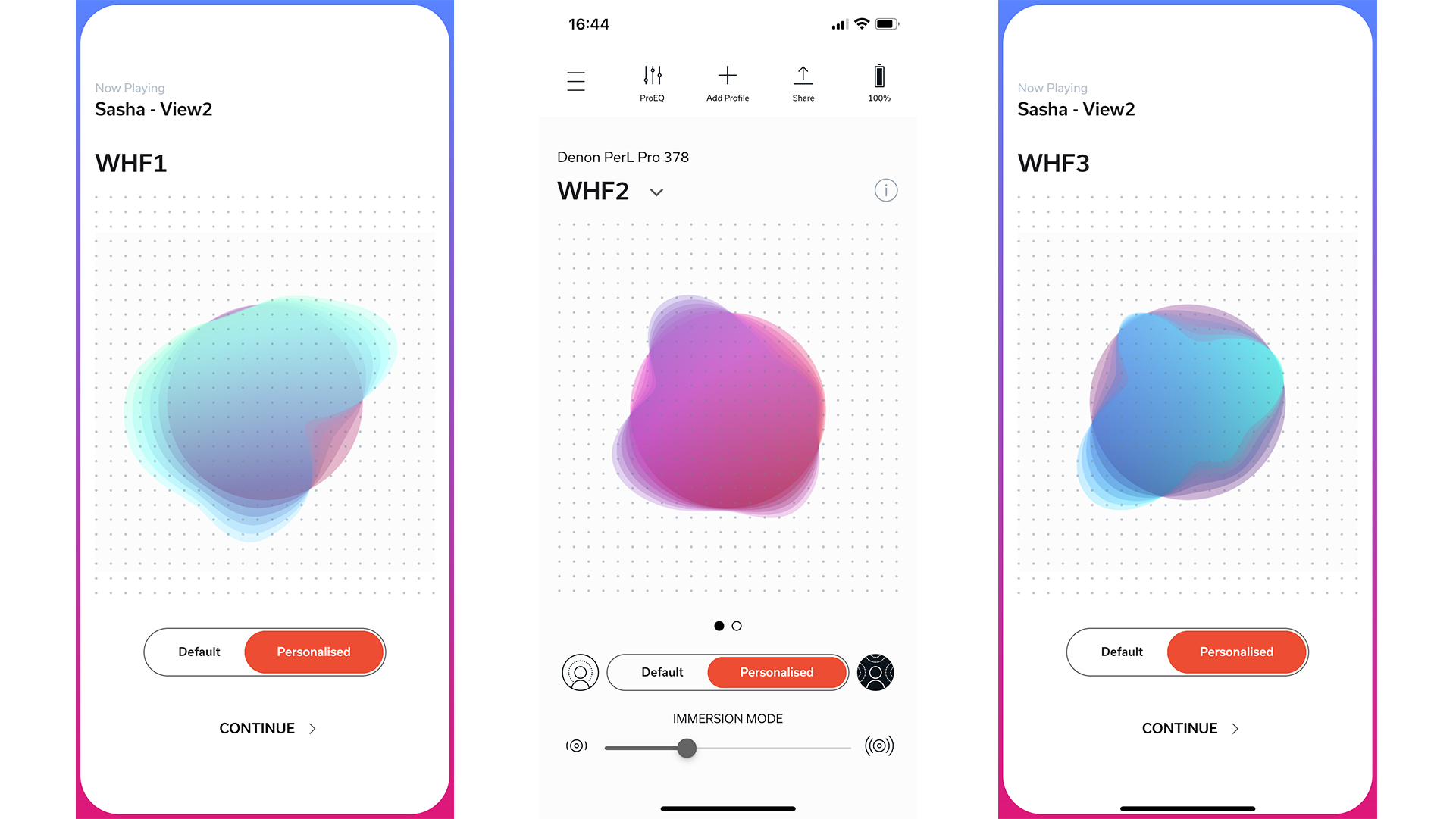
Using the Denon PerL Pro earbuds is a breeze. They connect to our smartphones swiftly each time and the Denon Headphones app in particular is packed with features that make it appealing to use.
The premier feature of the Denon earbuds is of course the personalised listening profile technology. Officially called Masimo Adaptive Acoustic Technology (AAT), the earbuds measure the sensitivity of your ears and create a hearing or sound profile that’s specific to you. The steps are easy to follow in the app; it’s an automatic and rather fun process that requires no input from you, just a quiet room and a few minutes of your time. During the measurement process, you’ll hear a series of beeps that change in pitch and speed, and an amorphous graphic (we’ll affectionately call it a blob) will start to form on the app screen. According to the app, this colourful blob will show which frequencies you’re most sensitive to and by how much, and the resulting hearing profile calculated for you will adjust the Denon buds’ sound to your liking. We should note that one of our reviewers had issues with the app crashing continually before the hearing test could start; we hope it’s a bug that can be easily fixed in future updates.
You can easily switch between your hearing profile and the Denon’s default mode to hear the effect, and there’s a very obvious difference between the two. You can also save up to three personalised profiles – we’d urge you to ask a friend or family member to run their own sound profile test to compare the profiles. Our review team stored multiple profiles, all with a different blob shape and all offering a different sound profile, and we even found we ended up liking each others’ profiles as well as our own.
The customisation doesn’t end there; there are adjustable EQ sliders to fine-tune the sound by degrees (available when listening in default mode), while an “immersion mode” (effectively a bass boost) slider lets you adjust the amount of bass heard. We prefer toning this down for a less boomy low end in both default and personalised modes, to -1 or even -2 on the slider for the best balance.

On to more standard wireless earbuds tech specs: Bluetooth 5.3 is on board, with the PerL Pro supporting the higher-quality aptX Adaptive and aptX Lossless codecs when paired with a compatible source. If you have the right pairing, you could listen to close to CD-quality streams over Bluetooth, as long as your source material and device are also of a similarly good quality.
You get spatial audio in the form of Dirac Virtuo, which can be applied to any song you’re listening to – they don’t need to have been mixed in Dolby Atmos. We find the spatial effect here to be rather underwhelming. It adds a little bit of width and height, but it’s so subtle that we wonder why they even bothered to include it. The effect is nowhere near that three-dimensional expansion of sound that is delivered so convincingly with the Sony XM5 or Apple AirPods Pro 2, regardless of whether you enjoy spatial audio tracks or not.
More successful is Bluetooth multipoint that lets you switch between two devices seamlessly, while battery life is a respectable eight hours on a single charge. You get 24 hours in total with the case, which can be charged up wirelessly or with a USB-C cable.
Sound
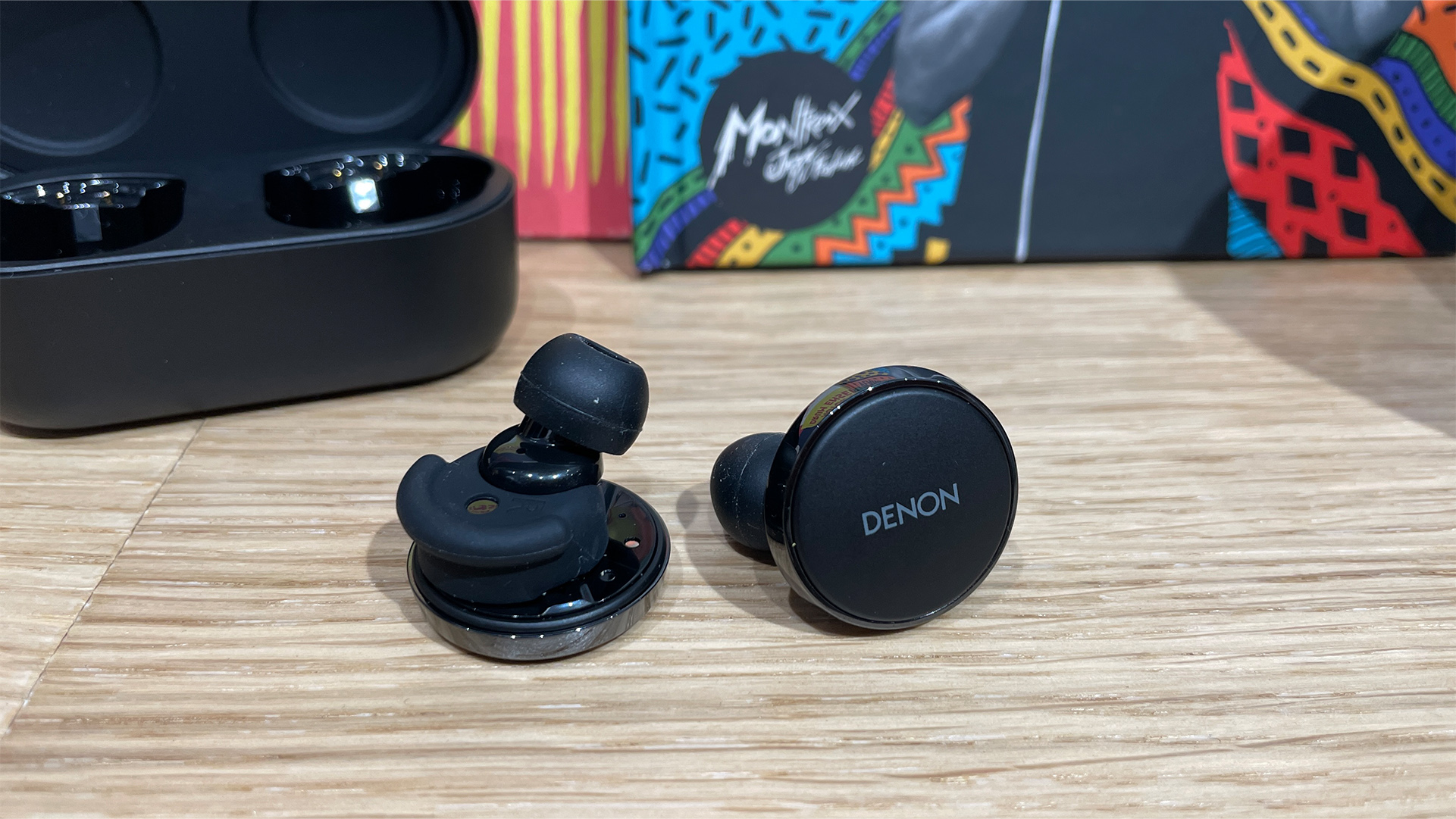
Do the personalised listening profiles offer a better audio performance than the default mode? It depends. The presentation changes with each saved profile, but they largely tend to make the soundstage a bit focussed, with the mids pushed forward to sound more solid and, to our ears, more punchy and interesting. Is it more accurate? Not likely, but we can see how this forward presentation would be more appealing than the flatter default mode.
Let’s talk about how the Denon PerL Pro buds sound on their default setting: clean, clear, open and spacious. The buds might have technology implemented by its parent company Masimo (a global medical health company), but the sound tuning is all done by Denon’s audio engineers. And it’s a wonderfully pristine and controlled sound.
There’s a good amount of detail, with voices on podcasts coming through with solid focus and great projection. Each podcast host’s personality on No Such Thing As A Fish shines through, and we find we can hear clearly at lower and higher volumes with little distortion creeping in.
Play Paradise Circus by Massive Attack in Tidal Master quality, and the track revels in the spacious, airy soundstage afforded by the Denon earbuds. There’s a slight brightness at the top end but it’s controlled enough that it doesn’t annoy over longer periods of listening. There is ample headroom for the top end to breathe, the delicate vocals are cleanly relayed – it’s a smooth sound with a very forthright midrange. We switch gears to Forget About Dre, and are impressed with the amount of aggression and bite heard through the song. There’s no flab; the edges of notes are neatly defined, and the charged emotions behind Eminem’s vocals come across well. The Denon are talented enough to reveal the changing of genres and feel of a song, too, which is no mean feat.
We do wish the earbuds pushed the boat further when digging up more instrumental texture and being more expressive with dynamics. Hope Sandoval’s breathy vocals on Paradise Circus sound that bit more nuanced and intimate through the excellent Sony WF-1000XM5 buds, which also offer more intent and rhythmic cohesion to all the instruments. We play the epic Jurassic Park Theme, and it’s here that we find the earbuds to be short on rhythmic agility and bass power. There’s not quite enough solidity or weight behind the instruments in the orchestra; you can hear all the individual elements, but they don’t quite gel together as a whole during the sweeping piece.The expected rousing quality as the track reaches its crescendo falls a touch flat. Employing the personalised sound profile here does add a bit of heft to the sound.
The sound profiles make certain frequencies sound more appealing, and we can imagine many preferring to keep the profiles turned on instead of the default sound. We do find that the individual profiles rob the Denon earbuds of their natural spaciousness and refinement, however. Which trade-off you prefer is entirely up to you.
Verdict
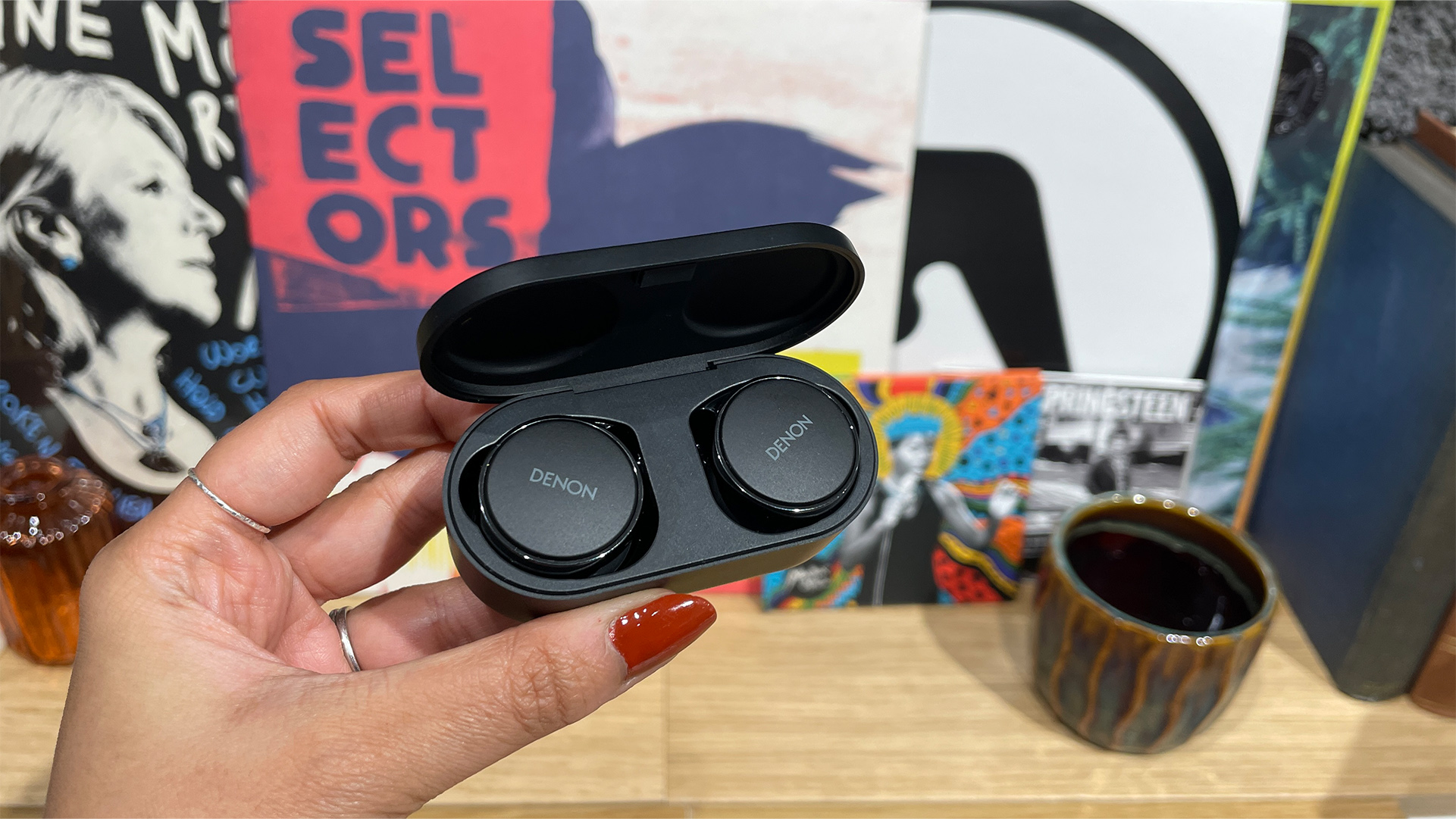
The Denon PerL Pro earbuds tick a lot of the feature boxes expected for wireless earbuds of this calibre, but it has, rightly or wrongly, put more effort into the eye- (or ear-) catching hearing profile aspect than ensuring those features perform at their best at this level.
But there’s plenty we like about the PerL Pro buds, from the interesting personalised sound profile creation to the customisable touch controls and its overall pristine, open sound. If you’re after a premium earbuds performance with a personalised option, these could be worth your time.
SCORES
- Sound 4
- Comfort 4
- Features 4
MORE:
Read our review of the Sony WF-1000XM5
Also consider the Bose QuietComfort Ultra Earbuds







